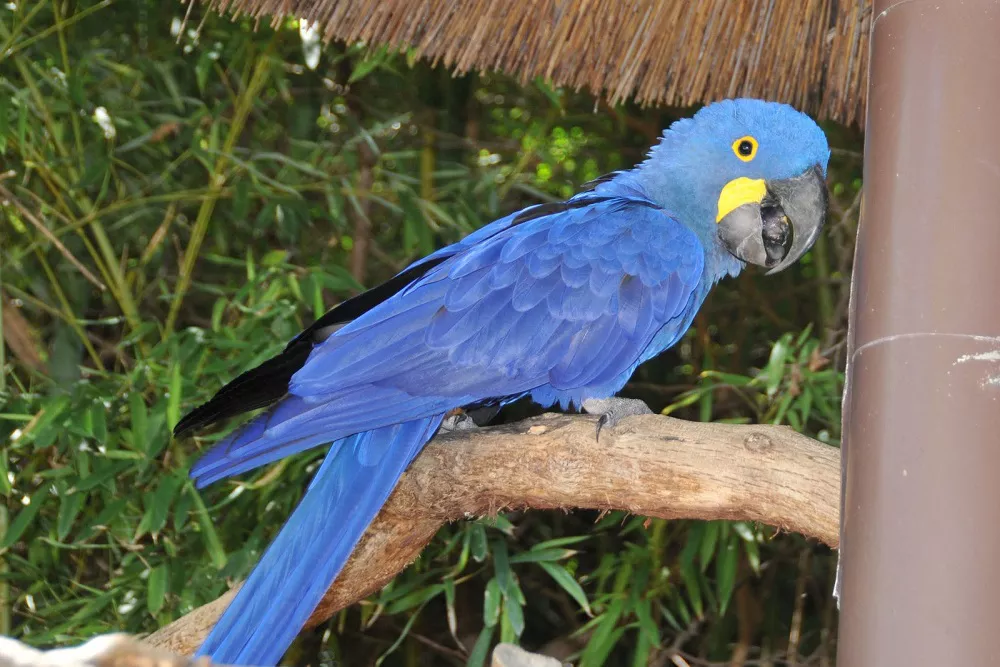Hyacinth macaws are one of the largest species of parrots in the world, known for their striking blue plumage and powerful beaks. They are native to South America, particularly in Brazil, Bolivia, and Paraguay, and are classified as endangered due to habitat loss and illegal trapping for the pet trade. One of the questions frequently asked about these magnificent birds is how long they can live.
The lifespan of hyacinth macaws in the wild is not well documented, but it is estimated that they can live up to 30 to 35 years. However, in captivity, hyacinth macaws have been known to live much longer, with some individuals reaching up to 50 years or more.
The longevity of hyacinth macaws is influenced by various factors, including genetics, diet, habitat, and veterinary care. Hyacinth macaws that are well cared for and provided with a proper diet, adequate space, and regular veterinary check-ups have a higher chance of living longer than those that are not.
Genetics also play a role in the lifespan of hyacinth macaws. Birds that are bred from healthy, long-lived parents have a better chance of living longer than those with unknown or poor genetic backgrounds.
Diet is another critical factor in the lifespan of hyacinth macaws. These birds require a balanced diet that consists of fresh fruits, vegetables, nuts, and seeds. A diet that is deficient in essential nutrients can lead to various health problems that can shorten their lifespan.
Habitat is also an essential factor in the lifespan of hyacinth macaws. These birds require adequate space to fly and exercise. In captivity, they need a large aviary or outdoor enclosure to live in, which should be equipped with perches, toys, and enrichment activities to keep them mentally and physically stimulated.
Regular veterinary check-ups are also crucial in maintaining the health of hyacinth macaws. These birds are susceptible to various health problems, including respiratory infections, feather plucking, and beak and feather disease. Prompt diagnosis and treatment of these conditions can help to ensure a longer and healthier life for the bird.
In conclusion, hyacinth macaws can live up to 30 to 35 years in the wild and over 50 years in captivity. Factors such as genetics, diet, habitat, and veterinary care all play a role in the lifespan of these birds. Providing proper care and attention can help to ensure that hyacinth macaws live long, healthy lives.


 Facebook
Facebook  Instagram
Instagram  Youtube
Youtube 